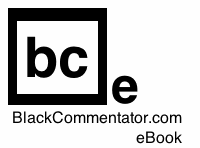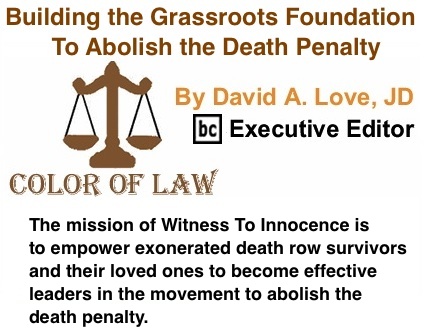


The following are excerpts of a presentation I made at the
Amnesty International
It is a pleasure to be
here. It is a pleasure to be here, and I want to thank Amnesty International for
inviting me to join this panel.
I’m the Executive Director
of Witness to Innocence.
WTI was founded 10 years ago, originally as a project of Sister Helen Prejean of the book and the film Dead Man Walking. The mission of WTI is to empower exonerated death
row survivors and their loved ones to become effective leaders in the movement to
abolish the death penalty. WTI is the only
nonprofit of exonerated death row survivors and their families. Our members spent
an average of 10 years on death row for crimes other people committed. Since 1973,
142 death row prisoners in the
Witness to Innocence has two purposes: First,
we serve as a support network for former death row prisoners, and seek justice for
the wrongfully convicted, including state and federal compensation. Second, our
members work with state abolition groups across the country, testify before legislatures,
and speak to audiences across the nation about their experiences and the compelling
issue of innocence and the death penalty. WTI and its members were involved in repeal
efforts in
I’d like to provide some
thoughts on how groups such as Witness to Innocence can help build the grassroots
foundation necessary to win and sustain abolition.
Innocence. There are many important reasons to
favor death penalty abolition. WTI categorically opposes the death penalty, and
we emphasize the innocence message as a compelling reason. Innocent people were
almost executed in the
Of the audiences who have listened to a Witness to Innocence speaker, 74
percent either maintained their position
against the death penalty or shifted their
opinion from favoring capital punishment (or being undecided) to being against the death penalty. More importantly, 46 percent shifted their positions from being in favor of capital punishment or undecided
to being against the death penalty.
Coalition building. There is
strength in numbers. To ensure that we are not merely preaching to the choir, and
to broaden support for our cause, we must reach out to other people and organizations
with common interests.
WTI is a U.S.-based death
penalty abolition organization that belongs to three coalition groups including
the National Coalition to Abolish the
Death Penalty, the Innocence Network (the umbrella group for all the innocence
projects in the nation), and the World Coalition Against the Death Penalty, which is based in
Paris.
We also reach out to
communities of faith, such as United Methodists, evangelicals, Catholic and Jewish
groups, as well as communities of color, civil rights groups and legal organizations.
In
Media. Typically WTI members speak at universities
and churches, to audiences of a hundred or more at a time. But what if they are
able to speak to audiences of thousands or millions at a time, such as when Kirk
was in the New York Times or
on the Colbert Report?
The way to permeate the
public conscience and change the climate of public opinion is through media, such
as press releases, op-eds, cable TV news, radio, blogs,
Facebook, Twitter and YouTube. Put together a media strategy,
publicize your campaigns and events, and increase your visibility and name recognition.
View media as a part of your advocacy and activism.
Finally, make the death penalty relevant to people
by framing the issue within the broader context of criminal justice and human rights.
Some people don’t care about the death penalty, or not as much as the people in
this room. Some are too busy with their daily lives. Change that.
Death penalty abolition
groups are focused on a single issue. But that issue invokes so many others.
The death penalty is
the tip of the iceberg of an unjust criminal justice system, in which
The subject of innocence
and wrongful convictions is tied to prosecutorial misconduct. Then there is the
issue of racial justice, as people on death row are disproportionately
of color, while the legal profession - including prosecutors, judges and defense
lawyers - are 90 percent white. Further, the race of the victim determines
a death sentence, as 80
percent of executions involved a white victim, although whites are only half
of all murder victims nationwide. Meanwhile, the all-white jury is a reality, as
some prosecutors illegally exclude black people from jury service. In the South the practice
is widespread. White jurors are 20 percent
more likely to vote for the death penalty than their black counterparts.
Capital punishment also
implicates questions of economic justice, class and inequality, since many on death
row are poor and could not afford justice. And the solitary confinement that death
row prisoners face - locked in a prison cell for 23 hours a day, awaiting execution
without human contact - is a form of torture as recognized under international human rights standards.
Our challenge is to help
the public understand how the death penalty relates to all of the other pieces in
the puzzle. We must demystify the death penalty and challenge the public’s assumptions,
give them the facts and educate them.

BlackCommentator.com Executive Editor and
Columnist, David A. Love, JD, is the Executive
Director of Witness to Innocence, a national nonprofit organization that
empowers exonerated death row prisoners and their family members to become
effective leaders in the movement to abolish the death penalty. He is, is a graduate of





